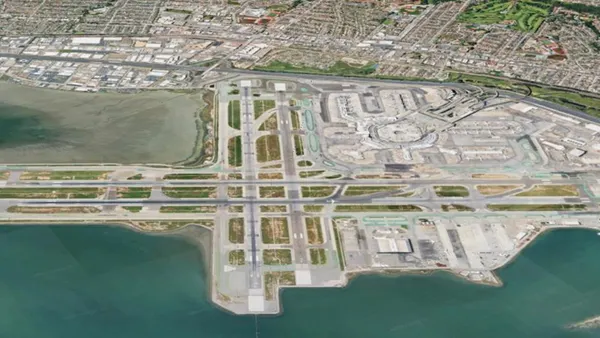Dive Brief:
- Autodesk, the San Francisco contech giant and one of three publicly traded stalwarts in the space, revealed that it would delay its annual financial report while it investigates its internal accounting practices, according to an April 1 filing with the Securities and Exchange Commission.
- After Autodesk released its earnings report in February for the quarter and fiscal year ended Jan. 31, management received unspecified information that prompted the investigation, per the filing. It will scrutinize its accounting on free cash flow and non-GAAP operating margin practices.
- Autodesk wrote in the filing that it does not believe that the investigation will affect any previously issued financial statements or its full-year results, revealed on Feb. 29. The company declined to comment, citing the ongoing investigation.
Dive Insight:
The company has seen its share of hurdles recently. Total billings for FY23 were down nearly 11% year-over-year, per its full year earnings release issued on Feb. 29. In November, Autodesk blamed declining billings on its shifting subscription model, which now uses annual billings, compared to its prior multi-year contract method. However, its revenue ticked up 10% year-over-year to $5.5 billion.
According to Bloomberg, the firm’s shifting business practices related to sending customers prices directly rather than via third parties could be the source of the issue now. The new approach “could yield higher net revenue, lower operating margin and no change to free cash flow,” Bloomberg Intelligence analyst Niraj Patel told the news service in an April 2 article.
These problems are not new to contech firms, which are now reckoning with a potential ceiling on new customers and pervasive difficulties in the market. Dan Laboe, the director of venture and investment research at construction advancement consortium Builtworlds, wrote in a November 2023 blog post that some firms may be scratching at the ceiling of their customer bases, and the number of potential buyers could “soon be quantifiable.”
Customers in the sector, he told Construction Dive in November via email, were looking at how they used technology.
“I do not believe that this is a signal that tech adoption has ended, but rather a period of tech stack reevaluation has begun,” Laboe wrote.
Other firms in the construction space have also run into accounting troubles.
Watsonville, California-based Granite has restated its financials twice since 2021, which has marred positive progress the firm made in its performance. As a result of its first instance, the SEC charged the builder and a former executive with fraud in 2022, and Granite eventually paid the regulatory agency $12 million to settle the allegations.
Irving, Texas-based Fluor has also run afoul of regulators — in September 2023, the company paid the SEC $14.5 million to settle allegations that it bid on two projects while relying on overly optimistic cost and timing estimates. Fluor neither admitted or denied the charges.














